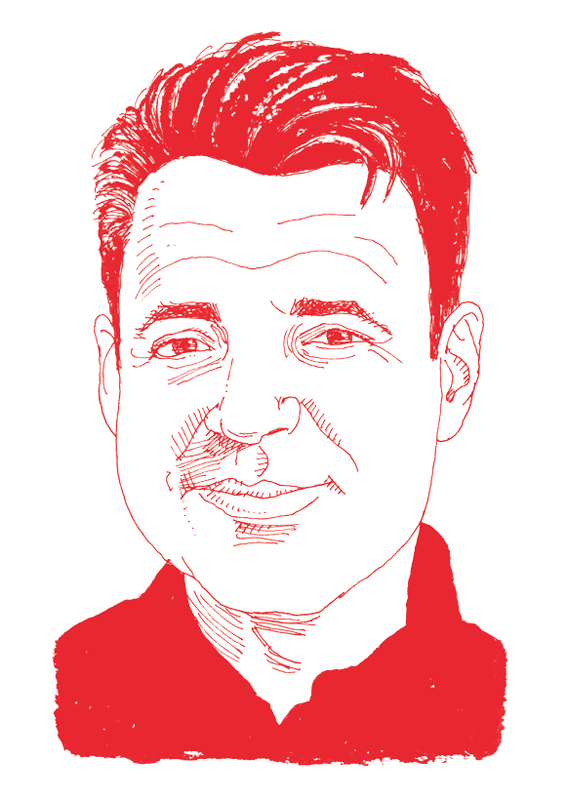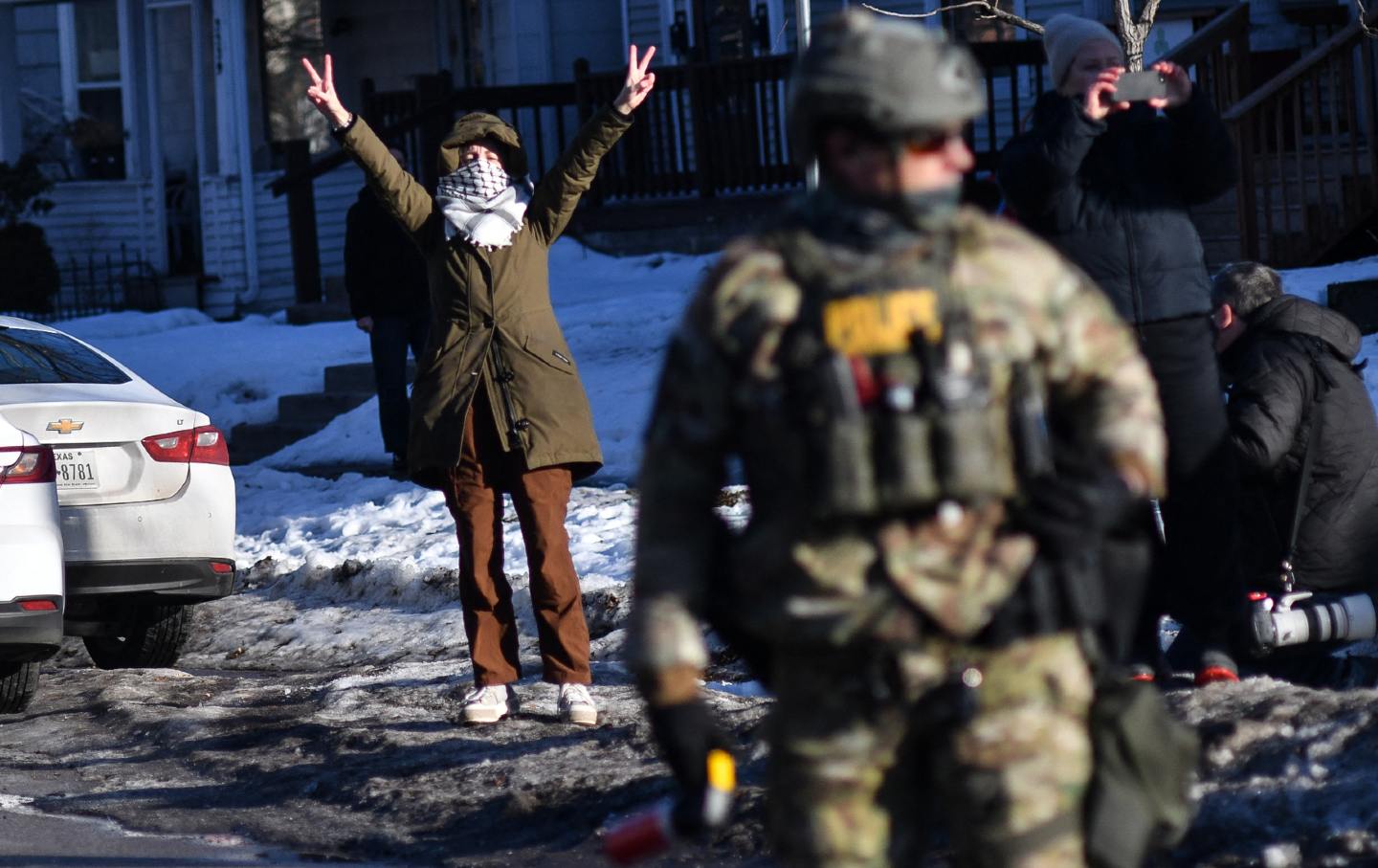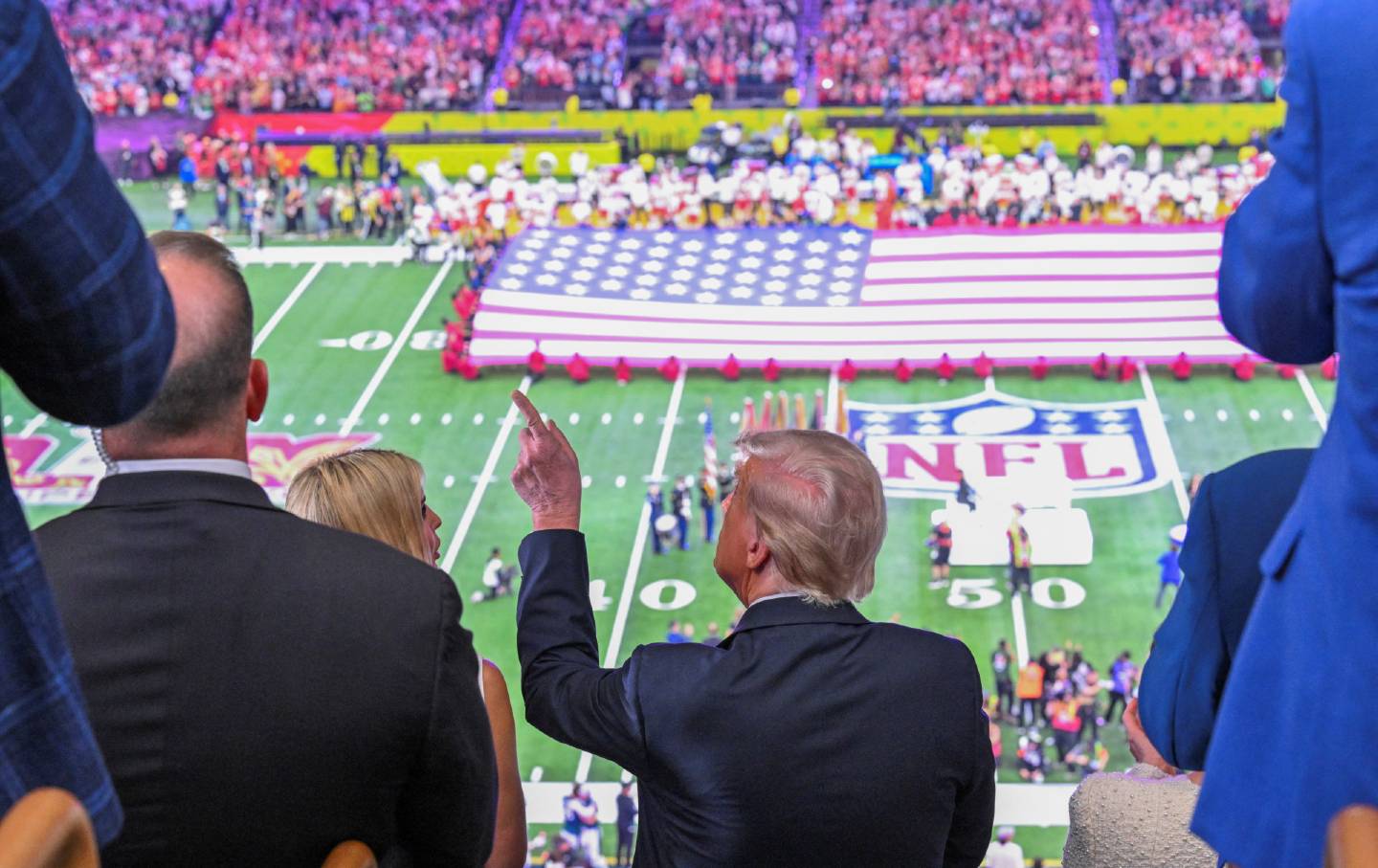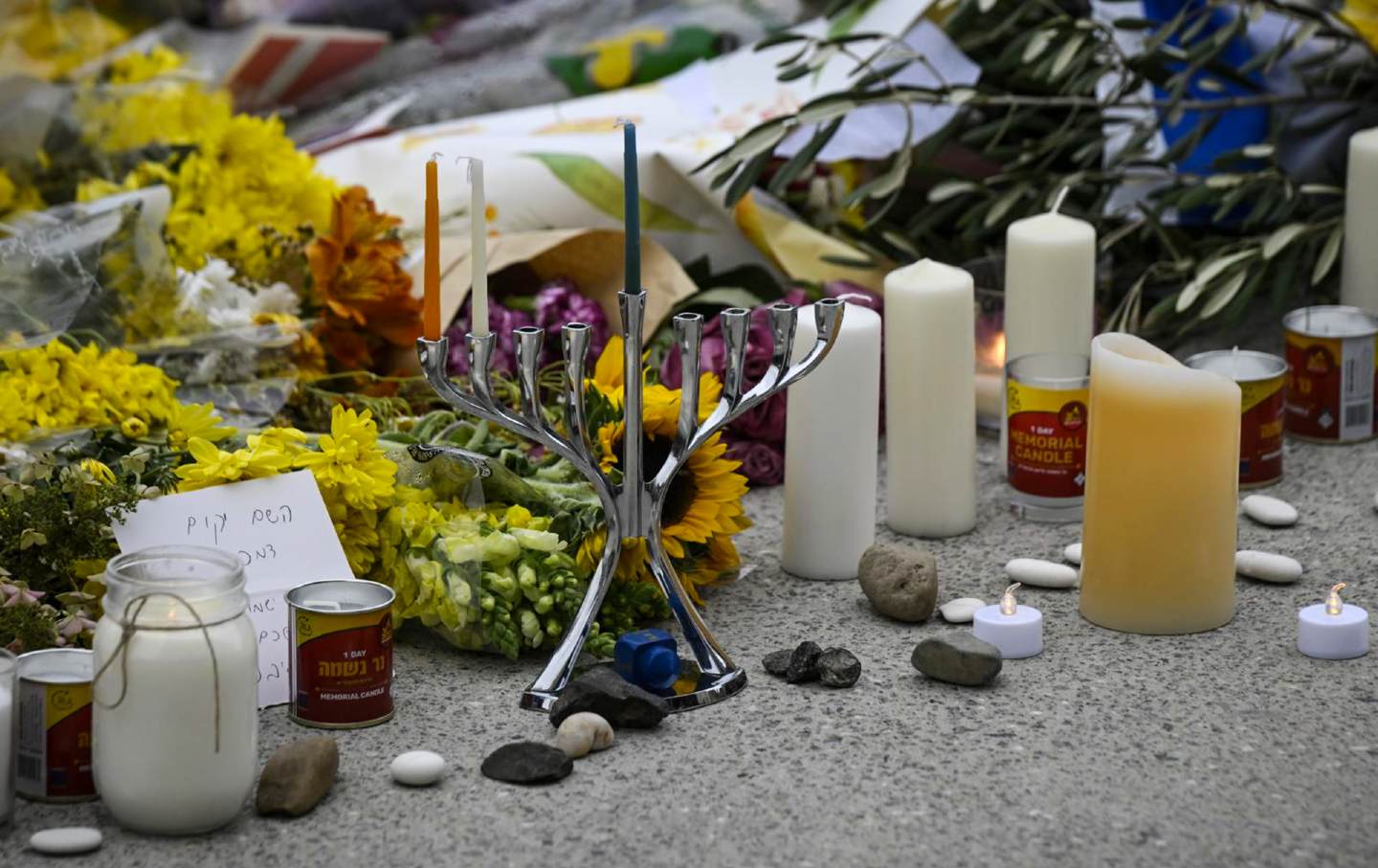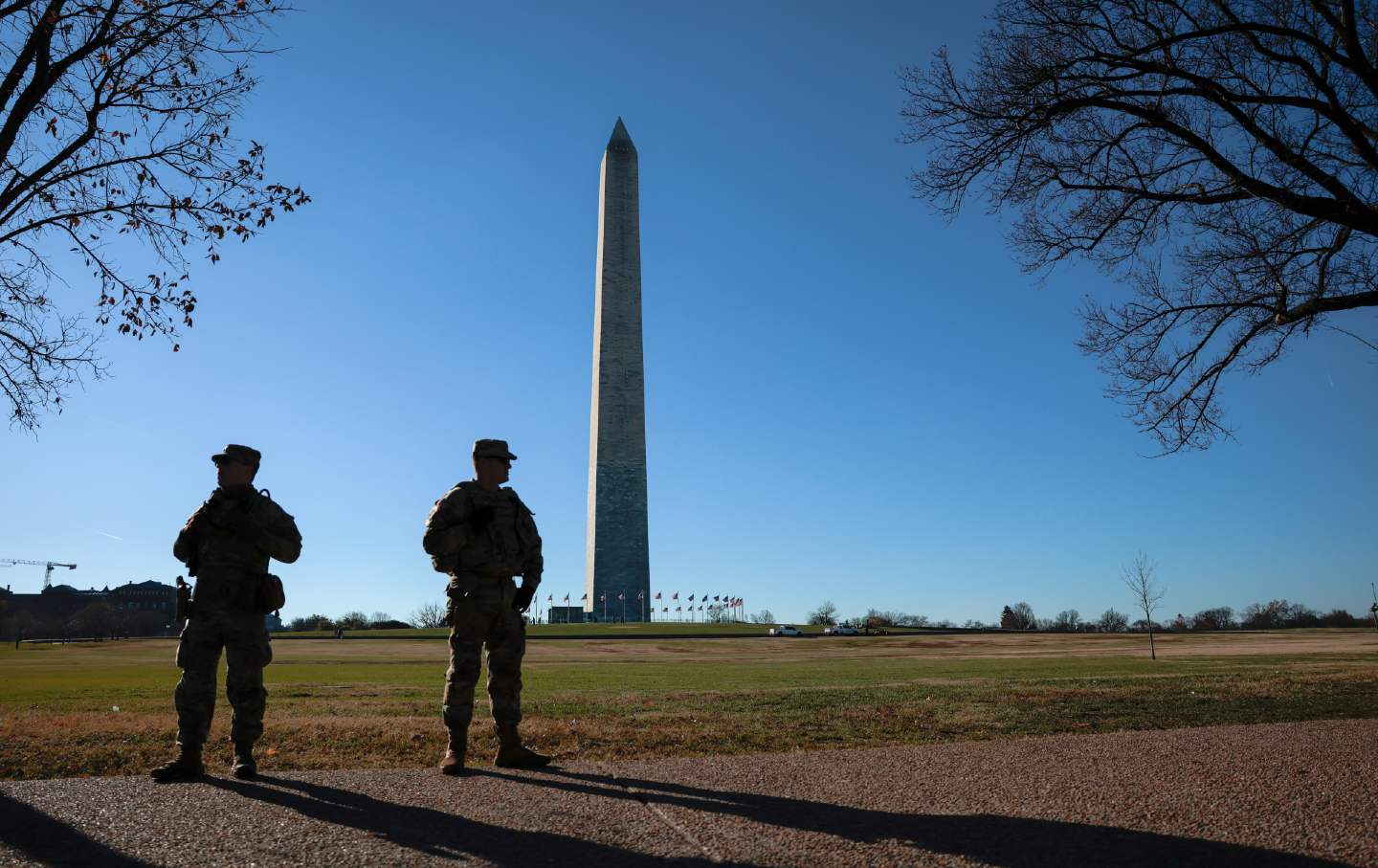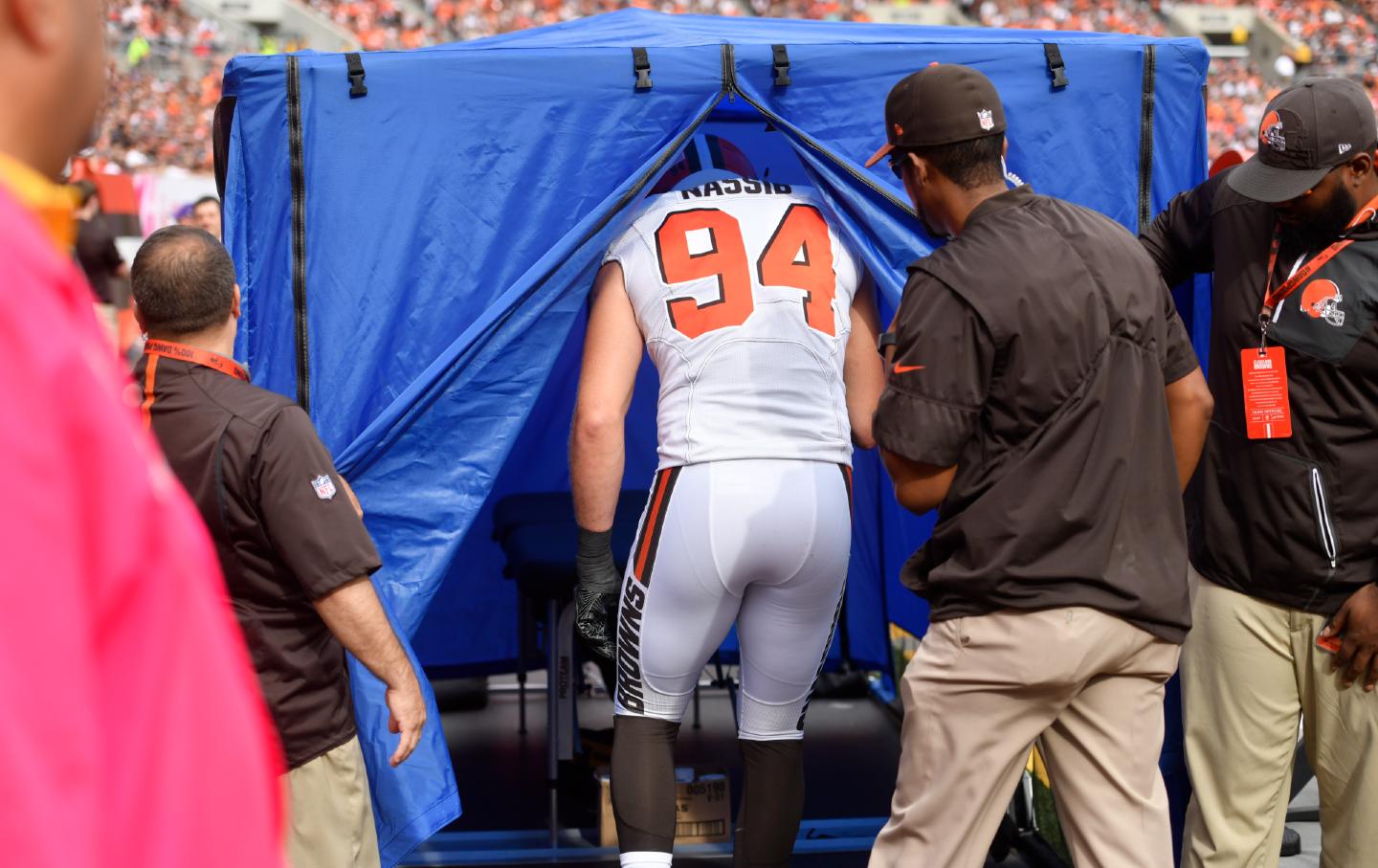Trump’s Rally Was a Desecration of Madison Square Garden
Under billionaire James Dolan, the ties between Madison Square Garden and New York City’s working class were already fraying. Then he gave the stadium’s keys to Trump.
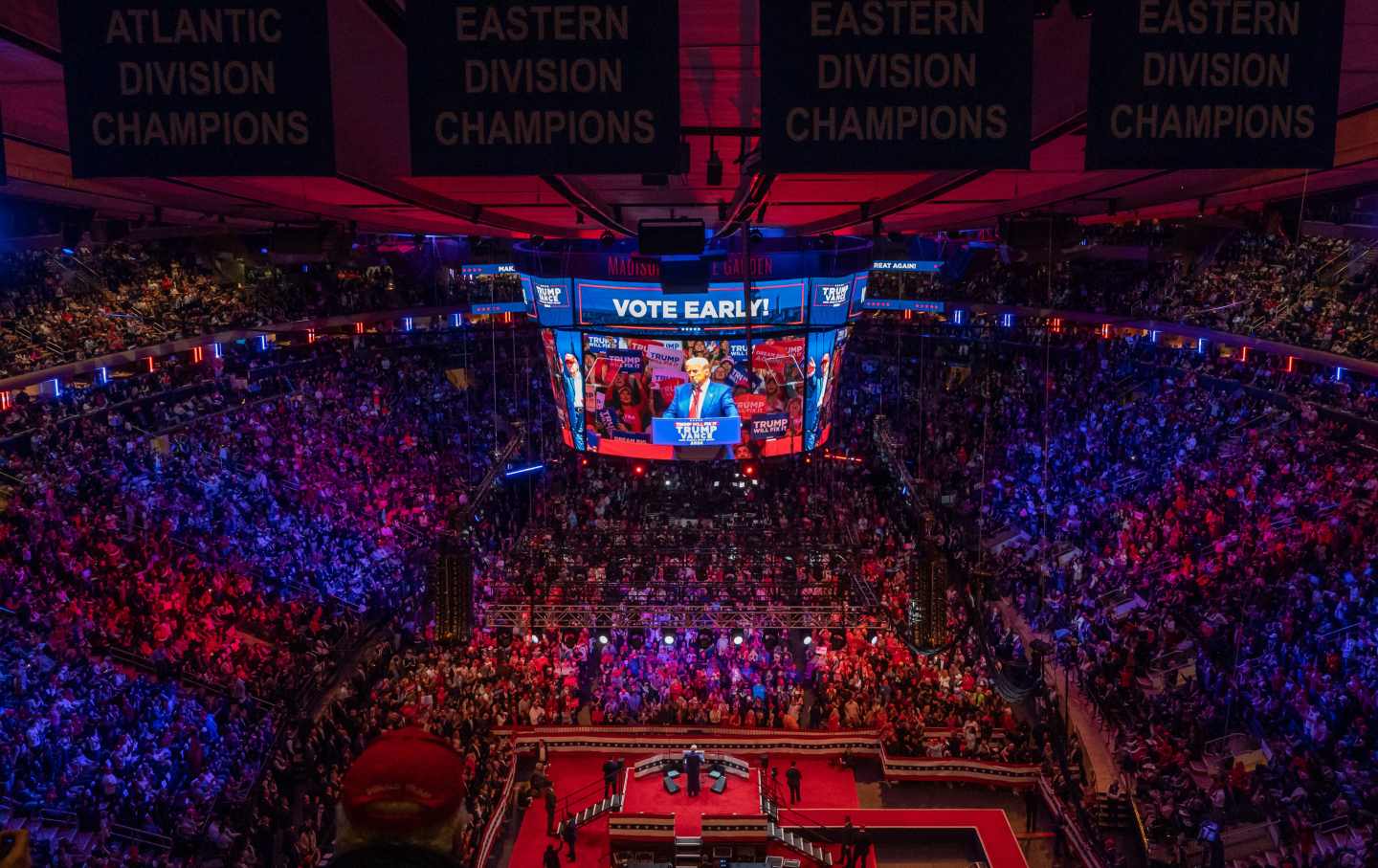
Former US president Donald Trump during a campaign event at New York City’s Madison Square Garden on Sunday, October 27, 2024.
(Adam Gray / Bloomberg via Getty Images)With his fascist New York City rally, Donald Trump has befouled what many believe to be a sacred space: Madison Square Garden. It wouldn’t be the first time a Nazi rally has packed people to the Garden rafters. In 1939, on the cusp of World War II, American Nazis filled the old Garden on 50th Street and Eighth Avenue to spew white-supremacist bile. This obscene event had been largely forgotten until the director Marshall Curry turned previously unaired archival footage into a short, Oscar-nominated film, 2017’s A Night In The Garden.
It would be naïve not to think that the Trump campaign was pondering 1939 when it put the rally plan together. Trump’s most bellicose billionaire backers—like Nazi-memorabilia enthusiast Harlan Crow, antidemocratic eugenicist Peter Thiel, and apartheid’s shitstain Elon Musk—as well as Trump’s brain trust undoubtedly wanted to wrap up the campaign in MSG as their own sly tribute to 1939. It seemed perfect: a wink at their hardcore base, but with just enough deniability that JD Vance can whine about being called a fascist, saying they were just there to “celebrate America” (that place Trump calls a “garbage can”). To think MSG was not chosen with great intentionality is to still believe that Trump is somehow a “normal” politician.
The rally has many incensed that the repugnant history of 1939 has risen from the dead. Madison Square Garden is, after all, revered as “the world’s most famous arena” for a reason. It was the site of the 1971 “fight of the century” between Muhammad Ali and Joe Frazier. It has been the stage of legendary concerts and pro-wrestling cards. It is also, of course, the home of the New York Knicks and Rangers. There is no greater tribute to the mystique of the Garden than that the building thrums with energy like no other arena, despite the mediocrity—with an occasional bright spot—of the two home teams over the last five decades. Many performers and athletes have attested to this unique buzz. I like the quote from the pro-wrestling impresario Paul Heyman, who said, “Madison Square Garden to any New York kid is the center of the universe. Even going there as a fan is like stepping up to the plate at Yankee Stadium. You know you’re in the grand cathedral.”
This idea that the place generates a special feeling for “any New York kid,” as I once was, is real. It sits right on 33rd and Seventh, the first thing outsiders see when they arrive at Penn Station and the first thing New Yorkers see when they return home. But Trump’s rally is a reminder that this arena is not “ours” even if we are the ones who fill it with the passion that has breathed life into the iron, the concrete, and the bright lights.
Instead, MSG, the Knicks, and the Rangers were inherited by nepo-billionaire James Dolan. For the unfamiliar, the almost 70-year-old Dolan is practically a child: a misogynistic cocaine enthusiast with a vanity rock band, whose lifetime of failure and incompetence has been cushioned by unspeakable wealth. As S.L. Price of Sports Illustrated wrote in a 2007 piece called “Lord Jim,” “The tales of Jim’s drug-and-drink-addled past, his volcanic temper, his shifting moods were already legendary, fueling the image of a spoiled boy who had been handed the keys to perhaps the most prized property in all of U.S. sports.”
He is also, of course, a Trump supporter, and he handed the keys of the Garden to the campaign like it was his to give away. And the truth is that it is his to do exactly that. I spoke to Frank Guridy, author of the new book The Stadium: An American History of Politics, Protest, and Play. He said, “The Trump MSG rally is a continuation of America’s political battles being fought in stadiums and arenas. Stadiums and arenas are political, and the Trump rally makes that clear, even as stadiums are dressed up as apolitical corporatized spaces. Note that the marquees outside the Garden were advertising the rally as if it was just another flashy Garden event, with Trump and his slogans plastered outside the Garden along with the advertisements for Verizon and other companies.”
This normalizes both Trump and his rally, Guridy noted. It makes it seem as if it’s just another Billy Joel concert, and it’s reminiscent of the signs outside the Garden in 1939 that read simply, “Pro-American Rally!”
More on Trump’s Madison Square Garden Rally:
Dolan is also, as Guridy pointed out, in a battle to preserve tax subsidies that have cost the state a billion dollars in revenue. In Trump’s world of nakedly corrupt, brazenly transactional politics, Dolan might be looking to protect his share of the corporate welfare trough. Or that might be giving him too much credit as a savvy thinker. It is far more likely he’s a fanboy who sees in Trump’s life of failing upward a best-case-scenario trajectory for himself.
Dolan is more than willing to use MSG as a political prop to actualize his right-wing fever dreams. His great advantage in the face of the ensuing outrage may be that, for most New Yorkers, the closest they get to actually being inside the Garden is the MSG Network.
The average cost of a Knicks ticket is the highest in the NBA, at $186. Once you bring your family, pay the usurious ticket fees, and hit the concession stands, you’ve spent enough on a two-hour basketball game to cover rent (well, maybe not New York City rent). The arena is a world away from the days when working-class people would use spare change to see wrestling legend Bruno Sammartino ply his trade. That sense of “ownership” that the city’s workers have historically felt toward MSG has frayed. With Dolan’s act of fealty toward Trump, the arena now becomes even more remote, looking more like the future residence of a Man in the High Castle than the home of an NBA champion. What Trump staged—right where Jalen Brunson makes memories almost every night—was a sin. But for Dolan, it’s just another degradation. This man is a blight on the city, and he proved it yet again by handing the often magical MSG to people who, like in 1939, just want to watch everything burn.

